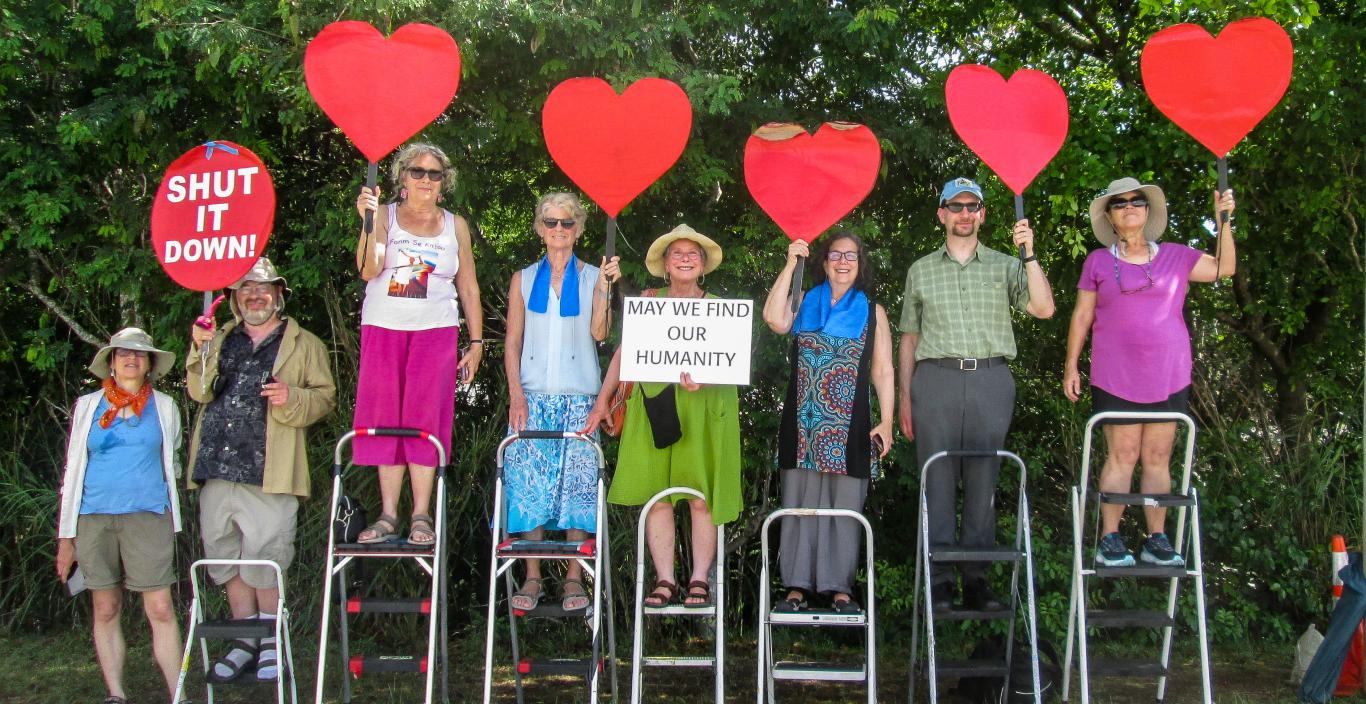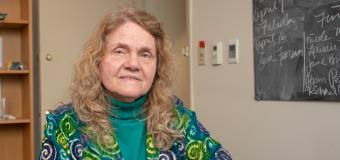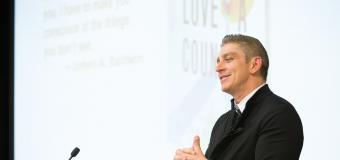Pictured: Associate Professor David Nurenberg (second from right) protests the treatment of children at a Florida detention center.
This is a firsthand account by Associate Professor David Nurenberg of his visit to the Homestead, Florida, immigrant detention center.
As educators we are entrusted with the care and well-being of children. Even after 20 years, I still regard this as an awesome responsibility, even more so since I became a parent myself. It is perhaps the greatest expression of our faith in the social compact with government that we trust its employees to nurture, protect and educate our kids. When this trust is violated, it strikes at the core of everything we hold dear.
This is the belief that led me to make the difficult decision to spend my Father’s Day weekend, not with my own kids, but on a stepladder outside the Homestead Detention Center in Southern Florida. I stood looking over a fence to watch groups of interned children being marched around in lines by security personnel, waiting to play brief games of soccer on a dusty brown pitch before being marched away. I had joined an ongoing group of local citizens in Homestead who bear daily witness, as best they can, to the goings-on here. It is probably no accident that many of them are teachers, too.
What we saw made us recoil: the internment of thousands of young children in unclean facilities, subjected to prison-style routines, forbidden to access lawyers, family members, or even to hug their siblings. (You can read the full report of all the upsetting details in the text of the lawsuit being filed by the Center for Human Rights and Constitutional Law). The Homestead facility is funded by $500,000 a day of our tax dollars, yet it is run by a private, for-profit company that denies access to child welfare workers and flagrantly violates the legal rights and protections of the children it holds, especially their rights under the 1993 Flores Agreement that prohibits the detention of minors for more than 20 days. (Some of Homestead’s children have been detained for months.) Our government claims the nature of the “immigration emergency” allows the company free rein to dispense with everything from living standards for the kids to background checks for its employees.



